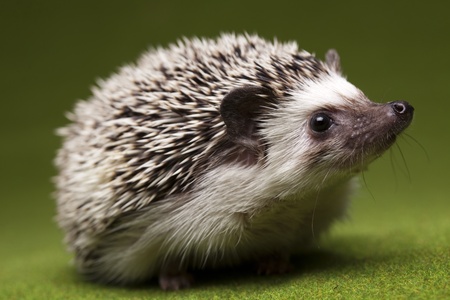What to Do When Your Hedgehog Has Mites
November 24, 2017
Manuka Honey , Manuka Honey Products For Skin Care, Health
For hedgehog owners, the idea that their beloved pet might have mites is not a pleasant one, but it is one that owners must be aware of and be ready to treat when the time comes. Mites can cause itching and even quill and hair loss, and many can agree that the little buggers are simply gross. However, mites aren’t an untreatable problem, and they can be dealt with accordingly and even avoided altogether, which we can imagine the hedgehog would prefer. Anyone who’s even been covered in ticks and chiggers can certainly sympathize to a degree, and hopefully that awful, itchy memory can provide some extra motivation for protecting your hedgehog.
What are Mites?
For hedgehog mites specifically, they’re a kind of arachnid similar to ticks and spiders that bite and trigger both skin irritation and the loss of hair and quills. Mites are tiny red or black arachnids that have the ability to spread from one animal to another fairly easily, and they are often contracted through various means, such as new bedding, food, and cage-mates. If your pet hedgehog just got a new friend before suddenly having mites, it’s likely they got the mites from their new cage-mate. If pet owners haven't brought in another hedgehog, the cause of this mite infestation likely stems from their bedding or kibble. Natural foods and substrates often have small mites on them, which are then introduced to the hedgehog's enclosure, causing an infestation.
Signs of a Mite Infestation
Pet owners may not be able to physically see mites on their hedgehog, but they can probably see the damage caused to the animal. Skin irritation and spine and hair loss are more obvious to the naked eye and are the signs owners should watch for. While it’s normal for hedgehogs to shed a few spines, areas with more apparent hair or spine loss are abnormal and a solid indicator of mites. From there, a vet can perform a skin scrape in order to acquire hair and skin samples to look at via a microscope for mites. Skin scrapes aren’t 100 accurate every time, but if there’s a heavy collection of mites, skin scrapes can usually uncover their presence on the hedgehog.
Treating Hedgehog Mites
If your vet finds mites on your hedgehog, they’ll likely recommend certain drugs for treatment, such as selamectin or ivermectin. Even when skin scrapes come back negative, your vet might still provide mite treatment since they’re pretty common in hedgehogs. In the event that the scrape is negative and the mite treatment doesn’t work, a skin biopsy might be necessary for checking for allergies or other diseases. Also, for any scratches or cuts caused by hedgehogs biting or scratching themselves, remember to have some antibiotic ointment and Manuka honey on hand.
Beyond treating for mites, the hedgehog’s environment must also be treated. Wash and clean their cage, water bottle, hide box, toys, wheel, and any towels or blankets with a light dish detergent, rinsing well. Any non-washable bedding should be thrown out along with any kibble inside the cage already. Freeze the remaining food and bedding you have for one full day, which should kill any remaining mites in them, thereby preventing a reinfestation.
Preventing Hedgehog Mites
Fortunately, preventing a mite infestation is fairly simple. For one, pet owners should wash their hands always after handling other hedgehogs. When bringing a new hedgehog home, quarantine them for a week, watching for any signs of mites or illnesses before allowing all the hedgehogs to meet. Also, be sure to wash your hands after touching the new hedgehog and before handling the other ones. Freeze all packaged food and bedding after buying it (but not mealworms or crickets) for one full day before putting them into the cage, given these items are often where mite infestations start when there’s no exposure to other hedgehogs.
Copyright: janpietruszk / 123RF Stock Photo


.jpg)



